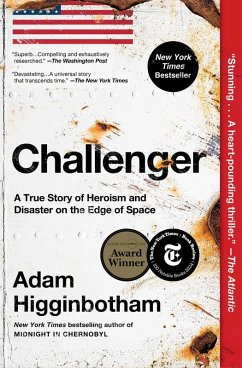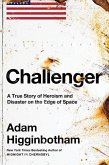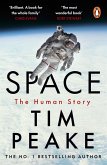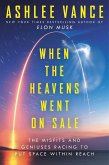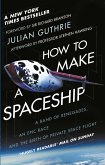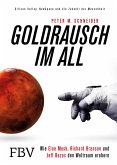Winner of the 2024 National Book Critics Circle Award in Nonfiction - Winner of the 2024 Kirkus Nonfiction Prize - Shortlisted for the 2025 Andrew Carnegie Medal for Excellence in Nonfiction - A New York Times Notable Book of 2024
NEW YORK TIMES BESTSELLER - "Stunning...A heart-pounding thriller...Challenger is a remarkable book." -The Atlantic - "Devastating...A universal story that transcends time." -The New York Times - "Dramatic...a moving narrative." -The Wall Street Journal
From the New York Times bestselling author of Midnight in Chernobyl comes the definitive, "compelling, and exhaustively researched" (The Washington Post) minute-by-minute account of the Challenger disaster, based on fascinating and new archival research-a riveting history that reads like a thriller.
On January 28, 1986, just seventy-three seconds into flight, the space shuttle Challenger broke apart over the Atlantic Ocean, killing all seven people on board. Millions of Americans witnessed the tragic deaths of the crew, which included New Hampshire schoolteacher Christa McAuliffe. Like the assassination of JFK, the Challenger disaster is a defining moment in 20th-century history-one that forever changed the way America thought of itself and its optimistic view of the future. Yet the full story of what happened, and why, has never been told.
Based on extensive archival research and meticulous, original reporting, Challenger: A True Story of Heroism and Disaster on the Edge of Space follows a handful of central protagonists-including each of the seven members of the doomed crew-through the years leading up to the accident, and offers a detailed account of the tragedy itself and the investigation afterward. It's a compelling tale of ambition and ingenuity undermined by political cynicism and cost-cutting in the interests of burnishing national prestige; of hubris and heroism; and of an investigation driven by leakers and whistleblowers determined to bring the truth to light. Throughout, there are the ominous warning signs of a tragedy to come, recognized but then ignored, and later hidden from the public.
Higginbotham reveals the history of the shuttle program and the lives of men and women whose stories have been overshadowed by the disaster, as well as the designers, engineers, and test pilots who struggled against the odds to get the first shuttle into space. A masterful blend of riveting human drama and fascinating and absorbing science, Challenger identifies a turning point in history-and brings to life an even more complex and astonishing story than we remember.
NEW YORK TIMES BESTSELLER - "Stunning...A heart-pounding thriller...Challenger is a remarkable book." -The Atlantic - "Devastating...A universal story that transcends time." -The New York Times - "Dramatic...a moving narrative." -The Wall Street Journal
From the New York Times bestselling author of Midnight in Chernobyl comes the definitive, "compelling, and exhaustively researched" (The Washington Post) minute-by-minute account of the Challenger disaster, based on fascinating and new archival research-a riveting history that reads like a thriller.
On January 28, 1986, just seventy-three seconds into flight, the space shuttle Challenger broke apart over the Atlantic Ocean, killing all seven people on board. Millions of Americans witnessed the tragic deaths of the crew, which included New Hampshire schoolteacher Christa McAuliffe. Like the assassination of JFK, the Challenger disaster is a defining moment in 20th-century history-one that forever changed the way America thought of itself and its optimistic view of the future. Yet the full story of what happened, and why, has never been told.
Based on extensive archival research and meticulous, original reporting, Challenger: A True Story of Heroism and Disaster on the Edge of Space follows a handful of central protagonists-including each of the seven members of the doomed crew-through the years leading up to the accident, and offers a detailed account of the tragedy itself and the investigation afterward. It's a compelling tale of ambition and ingenuity undermined by political cynicism and cost-cutting in the interests of burnishing national prestige; of hubris and heroism; and of an investigation driven by leakers and whistleblowers determined to bring the truth to light. Throughout, there are the ominous warning signs of a tragedy to come, recognized but then ignored, and later hidden from the public.
Higginbotham reveals the history of the shuttle program and the lives of men and women whose stories have been overshadowed by the disaster, as well as the designers, engineers, and test pilots who struggled against the odds to get the first shuttle into space. A masterful blend of riveting human drama and fascinating and absorbing science, Challenger identifies a turning point in history-and brings to life an even more complex and astonishing story than we remember.
"Stunning . . . Challenger is a remarkable book. It manages to be a whodunit that stretches hundreds of pages, a heart-pounding thriller even though readers already know the ending. The passion and ideals at the heart of human spaceflight come through, which only adds to the tragedy of understanding how many chances there were to save the astronauts aboard. Our faith in the systems that run our world is really faith in our fellow man-a chilling reality to remember." -The Atlantic

